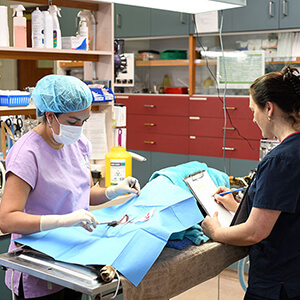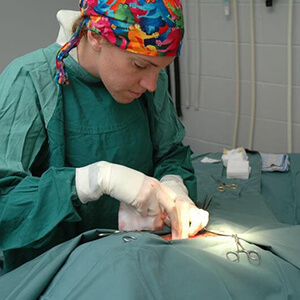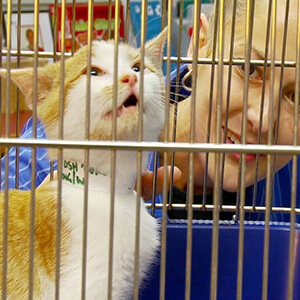After Hours
0408 512 323
Desexing Your Pet
A responsible choice, handled with care
Desexing (also known as neutering or sterilisation) is a surgical procedure that prevents your pet from being able to reproduce. In male animals, it's called castration, and in females, it’s known as spaying.
While desexing is a common and routine procedure, it’s still a significant surgery — and at Eureka Veterinary Clinic, we take every step to ensure it’s done safely, professionally, and with genuine care.
Why desex your pet?
There are many important benefits to desexing, both for your pet’s wellbeing and for the wider community:
- Prevents unwanted litters, helping reduce the number of stray and euthanised animals
- Reduces the risk of serious health issues:
- In males: testicular cancer and prostate disease
- In females: pyometra (infection of the uterus) and mammary tumours
- Stops the heat cycle in females
- May reduce aggression and roaming, especially in male pets
- Supports longer, healthier lives
- Lowers council registration fees
When should my pet be desexed?
The recommended age for desexing has changed in recent years. For most pets — particularly medium to large breed dogs — we now generally recommend waiting until they are over 12 months of age, to allow for full growth and joint development.
That said, there are circumstances where earlier desexing may be appropriate. We are happy to desex your pet at a younger age if needed, such as for council requirements, rescue adoption agreements, or personal preference.
The best approach is to discuss your pet’s individual needs with one of our vets. We’ll help you make an informed decision that’s right for your pet.
What’s included in our desexing service?
Although it’s a routine procedure, we approach desexing with the same care and attention we give to all surgeries. Our comprehensive desexing service includes:
- Surgery performed by experienced veterinarians
- Safe, modern anaesthesia protocols
- IV catheter placement for quick access to medication if needed
- Intraoperative fluid therapy to maintain blood pressure and hydration
- Pain relief during and after surgery, including take-home medication
- A post-operative check 10–14 days later to ensure proper healing
Cost and Value
Desexing costs vary based on your pet’s size and sex. We aim to provide excellent value by delivering a high standard of care from experienced vets and nurses, using best-practice anaesthetic and pain relief protocols.
📞 Call us on (03) 5333 5959 for a quote or to speak with one of our friendly team members.
CLICK HERE for available times and bookingsBOOK ONLINE >
Location








